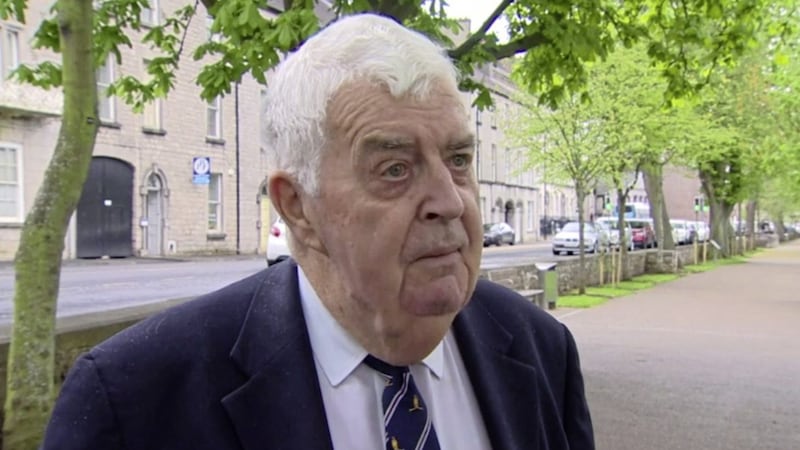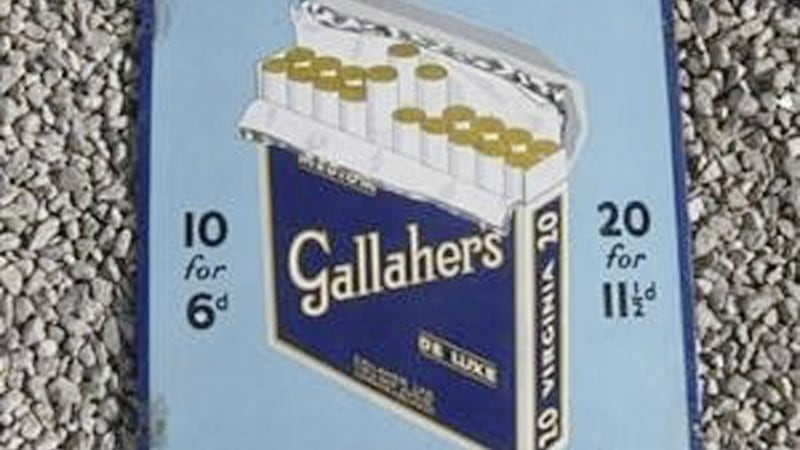I WAS up late finishing a novel by Isabel Allende, set during the coup in Chile in 1973, where the main protagonist was arrested with thousands of others and thrown into prison where he was tortured and beaten.
I woke to the compelling story of former People's Democracy leader Michael Farrell on Good Morning Ulster, recalling his own arrest and ill-treatment on the morning of August 9 197, 50 years ago to the day. He was forced to run barefoot across glass-strewn wasteground, harassed by barking guard dogs, through a gauntlet of baton wielding soldiers beating him and the other detainees.
A total of 342 men and boys were "lifted" – none of them loyalists. By the time internment ended in 1975, almost 2,000 people had been detained without trial – 100 were loyalists.
Before August 9 1971, the death toll for that year was 34. In the four months that followed it, 140 were killed, including the ten innocent civilians in Ballymurphy. The following year, the death toll was 500.
Few rational people could now defend the policy which the desperate Stormont regime said was intended to curb the growing violence. A subsequent Ministry of Defence review assessed it overall as a "major mistake". Former top civil servant Senator Maurice Hayes called it "possibly the worst of all the stupid things a government could do."
Luckily, we still have one member of that hapless crew left. Step forward John Taylor, now Lord Kilclooney, who even with the benefit of hindsight still maintains that internment "brought the IRA to heel."
"With age comes wisdom," Oscar Wilde declared. "But sometimes, age comes alone."
Quite.
***
When you walk down Belfast's Great Victoria Street from Shaftesbury Square, it's hard to believe the area was once known as The Golden Mile. Everywhere you look, it's boarded up: semi-derelict shop fronts with a few valiant businesses trying to avoid the stench of urban decay.
I was born round the corner from the once bustling Cromac Street, where ice-cream parlours looked across at a butchers' with what my child's eyes regarded as a horrifying display of hanging chickens, and where the smell of fresh baps from the home bakery filled the morning air. There was a lovely drapers' shop with a long wooden counter with the stock kept in deep drawers – in fact, that's where you bought your drawers.
Now look at it: a scruffy terrace of dereliction with pigeons flying out of empty windows.
The old Northern Bank building at the corner of Waring Street, once the site of the Belfast Harpers', is now a graffitied eye-sore with bushes growing out of the roof, while the end property of a beautiful four-storey stucco Georgian terrace at College Square has been vandalised as it lies neglected and empty.
According to Heritage at Risk NI, more than 500 buildings and monuments of architectural and historic interest are under threat because of lack of use and disrepair.
In cities like Barcelona, the authorities can take over a building if it is left in a deteriorating state when the owner can't be found or is unwilling to make repairs. They tackled their housing shortage by levying fines of more than €2m on banks that were sitting on empty buildings while waiting for the property market to improve.
With the loss of high street footfall post-Covid, our town centres are just going to get worse. Unless our planners and policy makers take more robust action we'll have nothing of architectural value left. Is anyone glad that the beautiful Grand Central Hotel in Royal Avenue was replaced by the now half-empty CastleCourt?
***

Sometimes, you think something but decide it's better left unsaid. When Lord Digby Jones got a recent rollicking for criticising Olympics presenter Alex Scott for dropping her 'g's in "shootin'", "fencin'" and "rowin'", I blushed. I had also remarked on how it grated with me that she sounded like loathsome Priti Patel, but only to my nearest and dearest.
He wisely pointed out that she was an excellent presenter and who cares about her diction anyway? Well, me and Lord Digby, and probably loads of other pedants out there whose company I don't want to share.
I am also not keen on hijab wearing, but don't want to find myself in the company of racists who abuse Muslim women on the streets for their choice, or the obnoxious French authorities banning it on the altar of secularity.
Least said, soonest mended is not something you will ever hear on Twitter, but that doesn't make it any less true.







